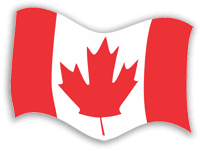 #23 Jean Chrétien: The Lucky Prime Minister
#23 Jean Chrétien: The Lucky Prime Minister
By Michael Bliss
| Jean Chrétien’s career shows how much can be accomplished in
Canadian politics by someone who is ambitious, hard-working, and
has good luck — even if they speak English with a very thick
accent. Chrétien did not speak English at all when he was elected to Parliament in 1963 from rural Quebec. He was only 29 years old, one of a middle-class family of 19 children. He worked hard, began to learn English, made many Liberal friends, and by 1967 had become a minister in Lester Pearson’s Liberal government. Chrétien was an enthusiastic supporter of Pierre Elliott Trudeau. During the Trudeau years he held every major position in the Canadian Cabinet and was one of the chief negotiators of constitutional reform in 1981-82. He earned a reputation as a tough guy not afraid to make hard decisions. The Liberal Party had a tradition of alternating between French and English-speaking leaders, so it was unlikely that Chrétien could succeed Trudeau in 1984. But after John Turner lost two elections, it was no surprise that the Liberals turned to Chrétien in 1990. The problem was that many felt he was a figure from the past, yesterday’s man. His streak of good luck occurred when the Progressive Conservative party fell apart in the early 1990s, and the Liberals crushed Kim Campbell’s Conservatives in the 1993 election. With the Conservatives divided and quarrelling, Jean Chrétien had no trouble winning big majorities in the 1997 and 2000 elections. His Liberals seemed to be Canada’s only national party. It was more difficult to govern a troubled country. In 1995 a second referendum in Quebec on separating from Canada almost passed. If just a few thousand votes had swung from “Non” to “Oui” Canada would have entered a terrible crisis. Chrétien would have been forced to resign as a failed prime minister. But his good luck held. After the referendum his government fought the separatist movement to a standstill. By the beginning of the 21st century the idea of independence seemed to be old, tired and in decline in popularity in Quebec. The Chrétien government was also forced to tackle the very large budget deficits Canada had been running since the 1970s. Major cutbacks in government spending in the mid-1990s proved surprisingly popular with voters worried that Canada was drowning in an ocean of debt. By the end of the decade the government was accumulating large financial surpluses. These enabled it to start cutting taxes even as it resumed spending. Many Canadians felt that Chrétien’s minister of finance, Paul Martin, had done an outstanding job and would soon become the next prime minister. Jean Chrétien liked to present himself as the little guy (le petit gars) from Shawinigan, Quebec. People joked that his accent was difficult to understand in either English or French. To average Canadians, including many recent immigrants, the Chrétien Liberals seemed both friendly and good communicators. At the end of the 20th Century Canada was a peaceful, prosperous and proudly multicultural country, a nation that minded its own business in world affairs, and supported most world organizations. Chrétien also got favourable publicity for leading groups of businessmen on Team Canada trade missions to China and other countries. On September 11, 2001, airports in eastern Canada welcomed thousands of travellers diverted from their journeys because of the terrorist attacks on the United States. Canadians sympathized with Americans in their war against terrorism, and on many other issues, and were very concerned that trade and people should continue to flow easily across the border. When pressed to join the American invasion of Iraq in 2003 the Chrétien government refused. Many experts were surprised that Canada had dared to disagree with the United States on this issue, but polls showed that the Canadian people strongly supported Chrétien’s position. Many Liberals had hoped there would be a smooth transition in their leadership from Chrétien to Martin early in the new century but the two Liberal giants did not like one another. There was a long and bitter struggle in the party that eventually resulted in Chrétien’s resignation in 2003 with Martin becoming his successor. Under Paul Martin, the Liberals were weak and divided and badly hurt by scandals in Quebec. They lost power in early 2006 to the revived Conservative Party under Stephen Harper. Very fit and active in retirement, Chrétien did not accept any of the blame for his party’s problems. For 40 years he had done his job, fought to preserve Canada, and enjoyed amazing success. Few politicians in the history of the country had wielded so much power in so many high offices for so many years. Further Reading: Right Honourable Men: The Descent of Canadian Politics from Macdonald to Chrétien, by Michael Bliss; Chrétien, Volume One: The Will to Win; Volume Two, Iron Man, by Lawrence Martin. Next Instalment: First Nations: European Contact to the Present The Canadian Experience is a 52-week history series designed to tell the story of our country to all Canadians. Sponsored by Multimedia Nova Corporation and Diversity Media Services partners, the series features articles by our country’s foremost historians on a wide range of topics. Past articles and author bios are available at http://www.cdnexperience.ca. The Canadian Experience is copyright ©2010-2011 Multimedia Nova Corporation. |
List of published "Canadian Experience" articles |
The Canadian Experience communicates to
us about the many facets of Canada, the people, the Charter, brings us
reality and creates understanding.
Copyright ©2010 Echoworld Communications. All rights
reserved

